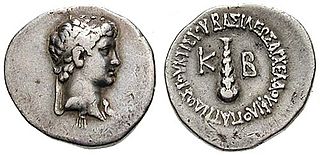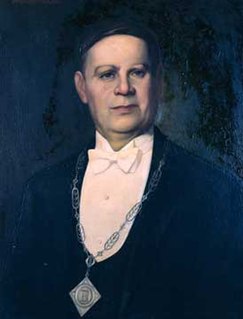 W
WArchelaus was a Roman client prince and the last king of Cappadocia.
 W
WChariton Charitonidis was a Greek classical philologist, professor at the Aristotle University of Thessaloniki and member of the Academy of Athens.
 W
WGeorge Dilboy, , Private First Class, U.S. Army, Company H, 103rd Infantry Regiment, 26th Division is thought to be the first Greek-American to receive the Medal of Honor during World War I. He led an attack on a machine gun position and continued to fire at the enemy despite being seriously wounded, killing two of the enemy and dispersing the remainder of the gun crew. General John Pershing listed George Dilboy as "one of the ten great heroes" who "died in the battlefield of France with super-human heroism and valor." Dilboy is buried in Section 18 of Arlington National Cemetery.
 W
WPapa Eftim I, was a Turkish bishop, who was the first Turkish Orthodox Patriarch of the Autocephalous Turkish Orthodox Patriarchate, an unrecognised Orthodox Christian denomination, that he founded. Eftim I had strong influences from Turkish nationalist ideology. He ruled as Patriarch from 1923 until 1962, when he resigned due to ill health. Keeping the title of honorary patriarch, he ordained his younger son as patriarch assuming the name Papa Eftim II.
 W
WGlaphyra was an Anatolian princess from Cappadocia, and a Queen of Mauretania by her second marriage to King Juba II of Mauretania. She was related to the Herodian Dynasty by her first and third marriage, to Alexander, son of Herod and Herod Archelaus respectively.
 W
WStratis Haviaras was a bilingual writer of literary works in English and Greek, known in the U.S. for his novels When the Tree Sings, and The Heroic Age. Both were critically acclaimed in the American press, and were translated into many languages. He also founded and edited the literary journals Arion’s Dolphin, Erato and Harvard Review.
 W
WHayhurum is the name given to Armenian-speaking Christians who are members of the Greek Orthodox Church. Their exact ethnicity was a source of debate. Some of these Armenian speakers, purportedly living in the vicinity of the town of Akn till the 16th century, were of Orthodox faith. There were also a number of people of Greek Orthodox profession among Hamshenis who are considered to be converted to Greek Orthodoxy during the days of the Empire of Trebizond.
 W
WProkopios Lazaridis was a Greek Orthodox metropolitan bishop, who served as a head in a number of bishoprics during the late Ottoman period. As a bishop of Iconium, modern Konya, in central Anatolia, he was involved with the issue of the creation of the Turkish Orthodox Church. He died in Turkish prison in 1923.
 W
WMisthi or Misti, was a Greek city in the region of Cappadocia, in what is now Turkey. It was situated 82 kilometres southwest of the regional capital of Caesarea, nowadays Kayseri, Turkey, and belonged administratively to the nearby city of Nigde, 26 kilometres north-northwest and at an altitude of 1380 metres above sea level.
 W
WAmbrosios Pleiathidis also known as Ambrosios of Moschonisia was the Greek Orthodox metropolitan bishop of Moschonisia, in modern Turkey, from February to September 1922. He was executed by the Turkish Army at the end of the Greco-Turkish War (1919-1922).
 W
WElias Venezis is the pseudonym of Elias Mellos, a major Greek novelist. He was born in 1904 in Ayvalık (Kydonies) in Asia Minor and died in Athens in 1973. He wrote many books, of which the most famous are Number 31328 and Aeolian Earth. He is considered to be one of the writers of "Generation of the '30s".
 W
WZeybeks or sometimes Zeibeks, were irregular militia and guerrilla fighters living in the Aegean Region of the Ottoman Empire from late 17th to early 20th centuries.